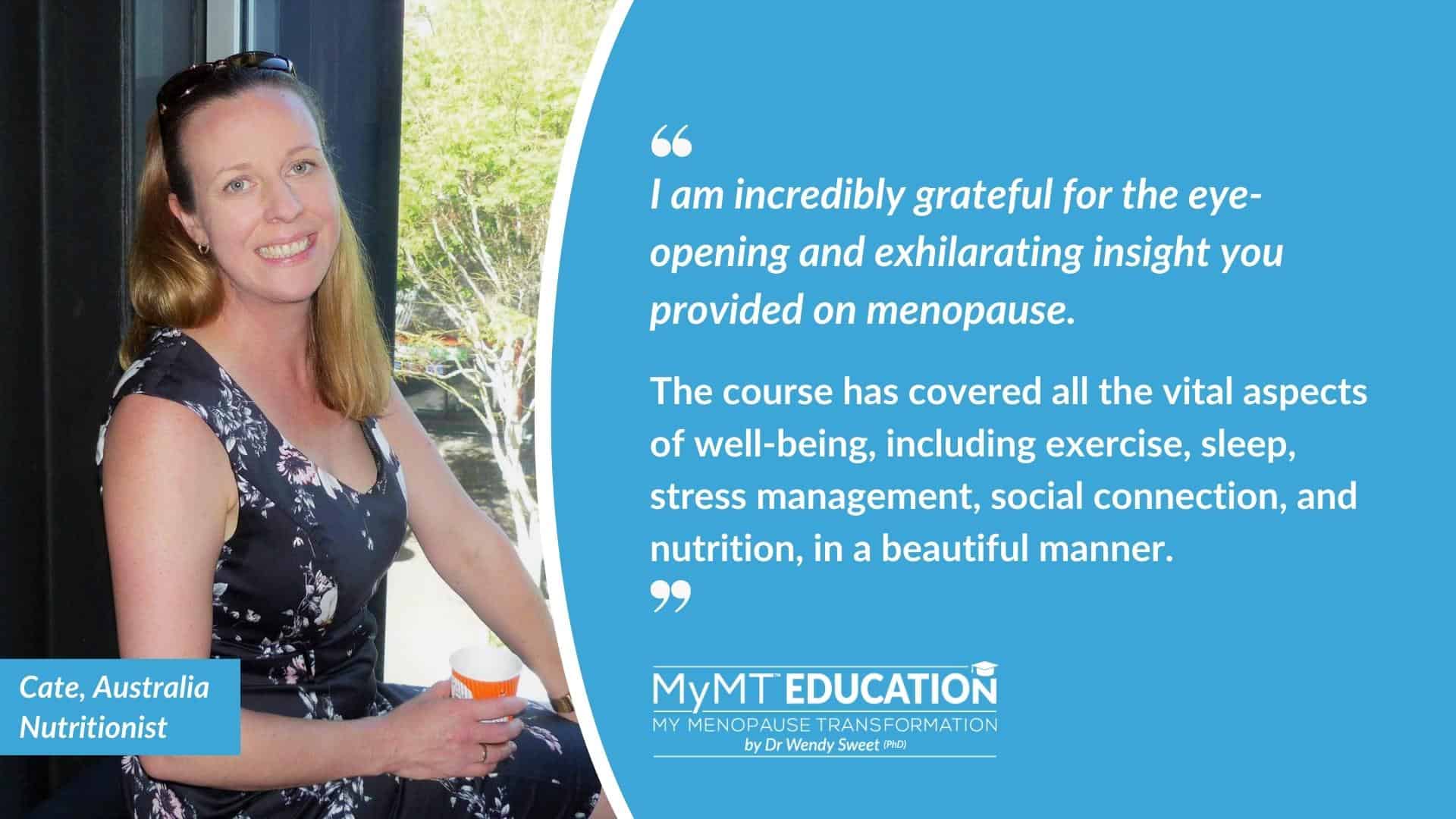When did you have your first cup of filtered coffee? Do you remember? I do.
It was in the early 1980’s. Someone had purchased a flash new coffee filter machine for the ICU staff room. Thinking back, maybe it was our wonderful new American Charge Nurse. She got most of us young nurses up to speed with ‘things that really mattered in life’ – like good quality coffee … the filtered kind.
Night duty was when I remember enjoying it the most. Sipping on a coffee whilst looking after patients, the cup used to be plonked on top of the ventilator. I know that wouldn’t happen now.
Coffee and tea consumption has been a part of my life for decades. Are you or your clients the same?
I enjoyed a cup in the morning when the kids were young. It’s appeared in my sports science and nutrition lectures (it’s a recognised ergogenic aid for performance), it’s appeared in my weight loss lectures for Personal Trainers (it’s a recognised fat-mobiliser) and when the cafe-culture arrived just down the hill from the famous Les Mills World of Fitness where I worked at the time, a good quality coffee took the edge off the stress of work.
These days talking about coffee also appears in the My Menopause Transformation programme information because, simply put, stopping to have a coffee or tea throughout our day, helps us to cope with all that life throws at us. Just try not to have the sugar.
Not only do busy women find that a cup of tea or coffee helps to relax them, but research suggests that the anti-oxidants are healthy for us and for post-menopausal women with breast cancer risk then a good quality coffee is known to be inversely associated with breast cancer risk and in women carrying a BRCA1 mutation. [Nehlig et al, 2021).

hen did you have your first cup of filtered coffee? Do you remember? I do.
It was in the early 1980’s. Someone had purchased a flash new coffee filter machine for the ICU staff room. Thinking back, maybe it was our wonderful new American Charge Nurse. She got most of us young nurses up to speed with ‘things that really mattered in life’ – like good quality coffee … the filtered kind.
Night duty was when I remember enjoying it the most. Sipping on a coffee whilst looking after patients, the cup used to be plonked on top of the ventilator. I know that wouldn’t happen now.
Coffee and tea consumption has been a part of my life for decades. Are you or your clients the same?
I enjoyed a cup in the morning when the kids were young. It’s appeared in my sports science and nutrition lectures (it’s a recognised ergogenic aid for performance), it’s appeared in my weight loss lectures for Personal Trainers (it’s a recognised fat-mobiliser) and when the cafe-culture arrived just down the hill from the famous Les Mills World of Fitness where I worked at the time, a good quality coffee took the edge off the stress of work.
These days talking about coffee also appears in the My Menopause Transformation programme information because, simply put, stopping to have a coffee or tea throughout our day, helps us to cope with all that life throws at us. Just try not to have the sugar.
Not only do busy women find that a cup of tea or coffee helps to relax them, but research suggests that the anti-oxidants are healthy for us and for post-menopausal women with breast cancer risk then a good quality coffee is known to be inversely associated with breast cancer risk and in women carrying a BRCA1 mutation. [Nehlig et al, 2021).
Many women are told to reduce their caffeine intake during their menopause transition, and yes, this may be helpful to help reduce anxiety, sleep and hot flushes, because caffeine is known to attach to adenosine receptors in the brain, but for women who have higher tolerance for caffeine, then having 1-2 cups of tea or coffee is fine. In fact, it could help allay their fatigue due to the higher levels of antioxidants.
Coffee provides a high content of chlorogenic acids and caffeine, as well as a significant content of nicotinic acid, trigonelline, tocopherols, cafestol, kahweol, and heterocyclic compounds – all known to have antioxidant benefits. [Komes & Busic, 2014].

For too long, women in mid-life who are turning to dietary and exercise advice are told to ‘give-up’ coffee and tea. I would argue that these people doing the recommendation don’t know the healthy ageing research or sports science research about the role of caffeine.
With research exploring LIFE-LONG coffee and tea consumption on men and women’s cardiac health as they age, post-menopausal women especially, won’t get the advice from me to refrain from coffee and tea either.
But there is one rule for my own clients, and that is not to have caffeine after 2pm. Caffeine attaches to adenosine receptors and has been researched in sleep studies to stay in our system for 6 hours. Hence, additional caffeine may keep your clients awake.
With collaboration between researchers at John Hopkins University and the National Institute of Health and the National Heart, Lung and Blood Institute, I now know that the limit on caffeine consumption (mainly from coffee) is 3 cups a day.
IS A SMALL INTAKE OF COFFEE CARDIO-PROTECTIVE?
Women in post-menopause are the highest demographic to develop heart disease as they age in many western countries globally. So thank you to the researchers who explored how coffee and tea consumption in the early adult lifespan affects the function of the heart in middle age.
The study is called the CARDIA study which stands for Coronary Artery Risk Development in Young Adults.
This research has been going on for decades but what interested me was that the researchers explored total caffeine intake (tea and coffee consumption) when participants were around 25 years old in 1985/86 – about the same time that I began to enjoy having coffee (I was already a tea drinker from about my late teens).
The participants were followed up at the 7 year and 20 year mark and most importantly, 58% of them were women. The findings were:
- Drinking 3-4 cups of coffee is associated with improved left ventricular (LV) function in mid-life. It was noted that this study was undertaken in America and therefore, the cups are around 2 times larger than in Europe.
- Drinking over 4 cups of coffee daily is associated with worsening LV function in mid-life.
- Drinking tea is not a problem (especially green tea).
Coffee contains biologically active substances such as flavonoids (antioxidant compounds that help to reduce inflammation), diterpenes (cholesterol raising substances) and melanoidins (naturally occurring carbohydrates and proteins found in coffee beans) and it is the combination of these substances that increase nitric oxide production.
I’ve written about how important nitric oxide is for women as they age to help dilate blood vessels, which become ‘stiffer’ as oestrogen levels continue to decline. The odd cup of coffee helps to reduce this arterial stiffness. [Zotti et al., 2023]
Whilst short-term increases in blood pressure may occur following caffeine intake, the researchers also found that this was not translated into long term risk for hypertension (high blood pressure). [Nwabuo et al., 2020].

Menopause is the gateway to our biological ageing, hence, positioning this time of life in ageing studies is important. It’s what I talk about with you in the MyMT™ Practitioner Course, and the next intake is in May. You must pre-register for this course first.
Numerous symptoms occur in midlife women, because of the life-time exposure to various stressors, including emotional stress and oxidative stress from doing too much exercise, or becoming overweight. And yes, for some women, too much reliance on caffeine in order to ‘cope’.
But as I mention in all of my courses, we mustn’t place ‘all’ midlife women in the same basket as to why their symptoms occur and this is what I help you to untangle in the courses.
Using scientific lifestyle research that’s been undertaken on mid-life women (not men or younger people), was important for me to navigate my own menopause symptoms and weight.
So, too was looking at menopause through the lens of ageing and through the lens of the life-course. It’s also why sharing this research about coffee and tea consumption was important to me. Because I know how much many women, just like to sit down in a nice little cafe and have someone bring us a cuppa instead of having to make it ourselves. That’s exactly what I’m doing in the image below.
I hope one day you can join me in the MyMT™ community on either of my CPD certification courses. What you will learn to help your clients to reduce their symptoms using the lifestyle applications I have researched might just astound you.
“Gosh, what a wonderful course. I absolutely loved it. As a GP working in the field of menopause I learnt so much. I’m currently working 1 day a week focusing perimenopause and menopause and mid life women’s health and am hoping this will develop into another day per week. I have found Wendy’s course so informative and use the knowledge from Wendy’s course every day with my patients.” [Dr Julie M., South Australia]
Dr Wendy Sweet (PhD)/ Member: Australasian Society of Lifestyle Medicine.

References:
Harpaz E, Tamir S, Weinstein A, Weinstein Y. The effect of caffeine on energy balance. J Basic Clin Physiol Pharmacol. 2017 Jan 1;28(1):1-10. doi: 10.1515/jbcpp-2016-0090. PMID: 27824614.
Mendoza MF, Sulague RM, Posas-Mendoza T, Lavie CJ. Impact of Coffee Consumption on Cardiovascular Health. Ochsner J. 2023 Summer;23(2):152-158. doi: 10.31486/toj.22.0073. PMID: 37323518;
Nehlig A, Reix N, Arbogast P, Mathelin C. Coffee consumption and breast cancer risk: a narrative review in the general population and in different subtypes of breast cancer. Eur J Nutr. 2021 Apr;60(3):1197-1235. doi: 10.1007/s00394-020-02465-0. Epub 2021 Jan 13.
Nwabuo, C., Betoko, A., Reis, J., Moreira, H …. Lima, J. (2020). Coffee and tea consumption in the early adult lifespan and left ventricular function in middle age: the CARDIA study. ESC Heart Failure, Wiley Online Library.
O’Callaghan F, Muurlink O, Reid N. Effects of caffeine on sleep quality and daytime functioning. Risk Manag Healthc Policy. 2018 Dec 7;11:263-271. doi: 10.2147/RMHP.S156404. PMID: 30573997
Zotti, Francesca; Marozzi, Marialuisa Sveva; Vacca, Antonio; Rignani, Federica; Gramegna, Davide; Amodio, Gianfranco; Santoro, Giuseppe; Benedittis, Lorenzo De1; Schirosi, Gabriella; Brosolo, Gabriele; Catena, Cristiana; Cicco, Sebastiano; Sechi, Leonardo A.; Nazzaro, Pietro. COFFEE CONSUMPTION RELATES TO A REDUCTION OF AORTIC STIFFNESS BUT NOT ON MICROCIRCULATION IN WELL-CONTROLLED HYPERTENSIVES. Journal of Hypertension 41, (Suppl 3):p e273, June 2023. | DOI: 10.1097/01.hjh.0000941828.28614.42

